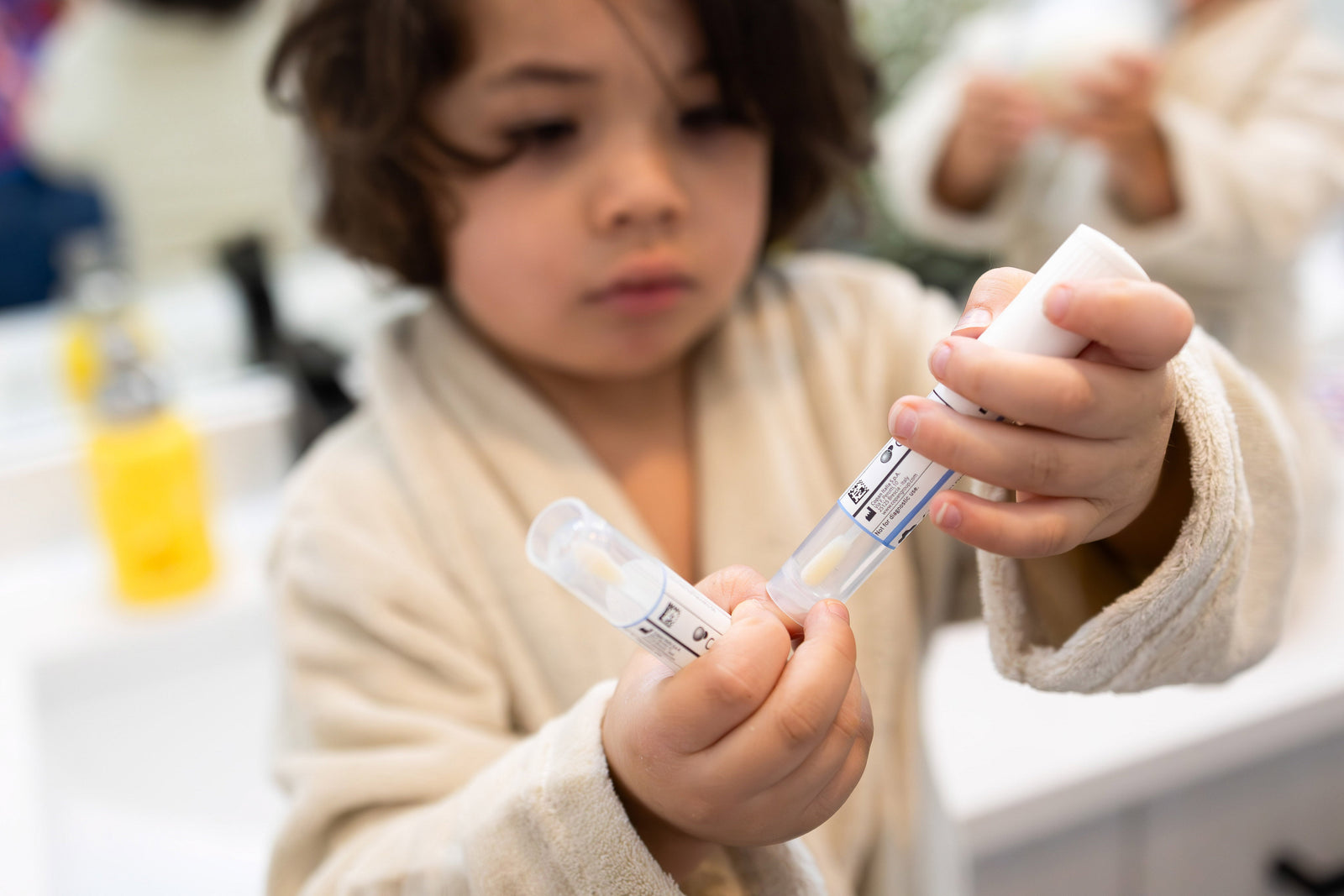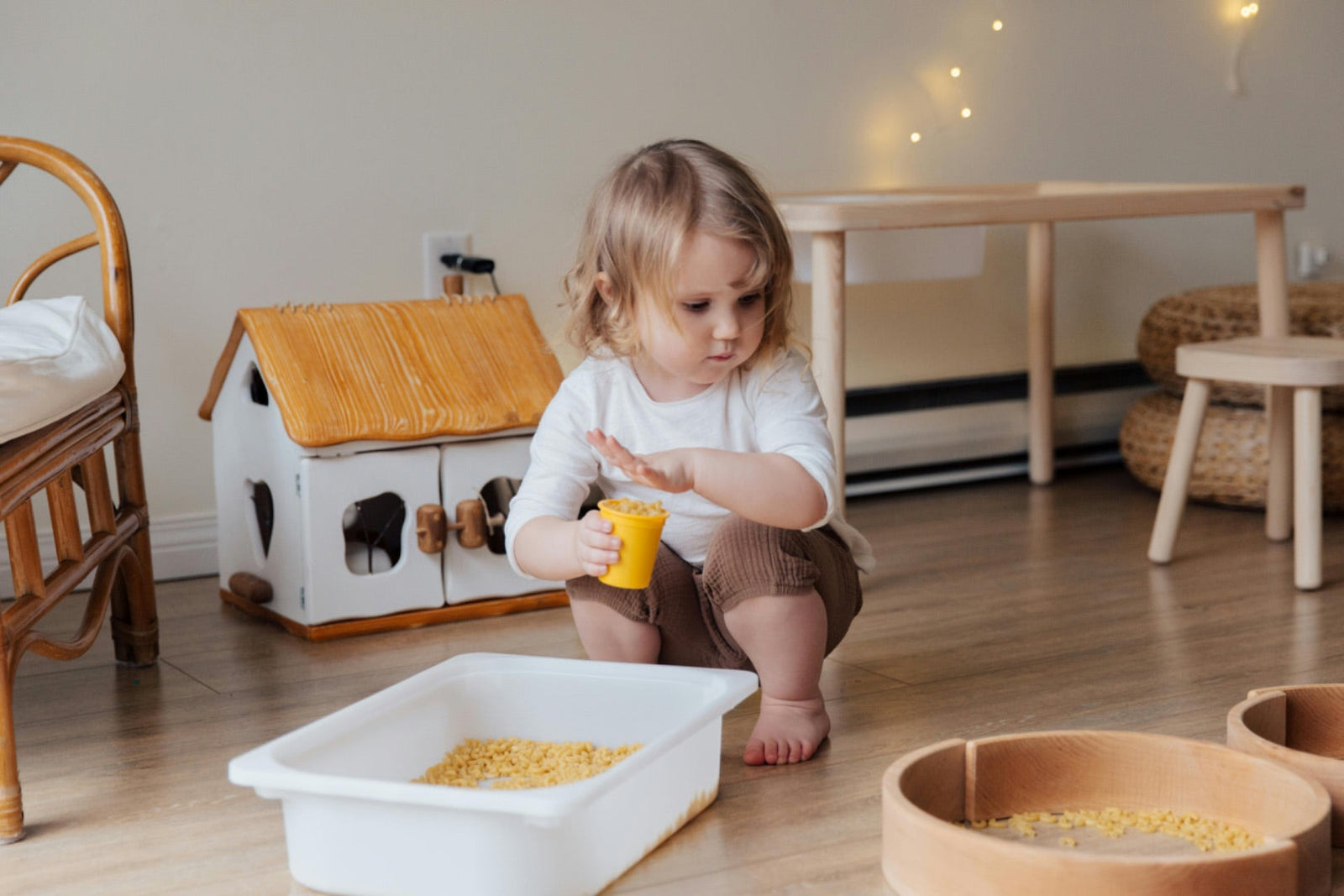Your Cart is Empty
Continue shoppingCan My Toddler Take Probiotics for Constipation?
Medically Reviewed by May Zhu, RDN | Published December 20, 2024
share this article

Constipation in toddlers is a common yet frustrating challenge for many parents.
Characterized by infrequent, hard, or painful bowel movements, constipation can lead to discomfort and even behavioral issues like bathroom anxiety.
While dietary changes and hydration are the go-to remedies, many parents wonder if probiotics can be a safe and effective solution for easing their toddler's constipationstruggles.
What Are Probiotics?
Probiotics are live microorganisms, often referred to as “good bacteria,” that support a healthy gut microbiome.
These beneficial bacteria help balance the gut ecosystem, improving digestion and supporting overall health (Ouwehand et al., 2002). For toddlers, certain probiotic strains may specifically target digestive health, making them a potential ally in relieving constipation.
How Probiotics Help Constipation Symptoms
Probiotics can address constipation through several mechanisms:
Balancing Gut Microbiota
An imbalance in gut bacteria, also known as dysbiosis, is linked to constipation. Probiotics restore balance by increasing populations of beneficial bacteria likeBifidobacteria and Lactobaccili, which improve stool consistency and frequency (Mugie et al., 2011).
Enhancing Stool Softness
Some probiotic strains produce short-chain fatty acids (SCFAs) that help draw water into the colon, softening stools and making them easier to pass (Dimidi et al., 2017).
Improving Intestinal Motility
Probiotics can promote healthier gut contractions, reducing the time stool spends in the digestive tract and preventing it from becoming hard and dry (Bekkali et al., 2007).
Safe Probiotic Strains for Toddlers
Not all probiotics are created equal, and some strains are more effective for supporting constipation than others. Research suggests that the following strains are particularly beneficial for toddlers:
- Bifidobacterium lactis: Known to improve stool frequency and consistency.
- Lactobacillus rhamnosus GG: Helps regulate bowel movements.
- Bifidobacterium longum: Supports overall gut health and motility.
Here's why this Pediatric Doctor recommends Bifidobacteria for gut health.
Is It Safe for Toddlers to Take Probiotics?
Probiotics are generally safe for toddlers, especially when using strains that have been clinically tested for pediatric use.
However, it’s always best to consult your pediatrician before introducing any new supplement, particularly if your kiddo has underlying health conditions or a weakened immune system.
Probiotics are available in various forms, including powders, chewables, and drops, making them easy to incorporate into a toddler’s routine.
For toddlers with constipation symptoms such as hard or infrequent stools, choosing a product specifically designed for kids, like Begin Health's Growing Up Prebiotics, can help them find relief in a more gentle and natural way.
Other Tips for Relieving Toddler Constipation
While probiotics can be a helpful tool, they work best as part of a holistic approach that includes:
- Fiber-Rich Foods: Include fruits like pears, apples, and prunes.
- Hydration: Ensure your toddler drinks enough water throughout the day.
- Routine: Establish regular bathroom habits to reduce stress.
Conclusion
Probiotics can be a safe and effective option for helping constipation in toddlers by improving gut health, softening stools, and supporting intestinal motility. Combined with a fiber-rich diet, hydration, and healthy routines, probiotics offer a gentle and natural way to keep your toddler’s digestion on track.
Summary
Probiotics can help relieve constipation in toddlers by balancing gut bacteria, softening stools, and improving bowel movements.
Always consult a pediatrician before introducing a probiotic supplement to ensure it's safe for your little one.

Author
May Zhu, RDN
Trending

Inc. Names Begin Health to Its 2025 List of the Fastest-Growing Private Companies in the Midwest
read now
Oxalates and Kids' Digestion: How High-Oxalate Foods Contribute to Constipation and Gut Discomfort
read now
5 Signs Your Toddler Needs a Poop Test
read now






